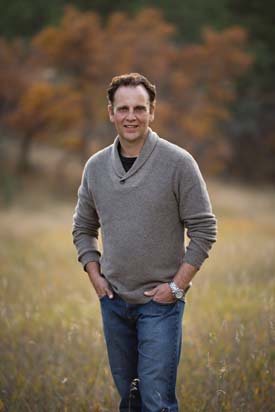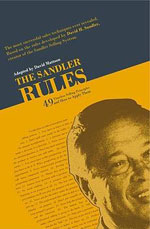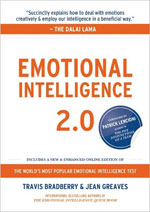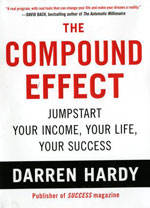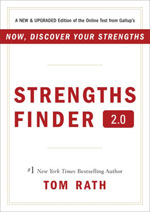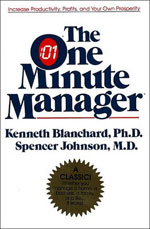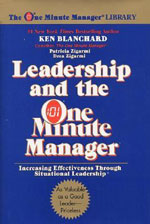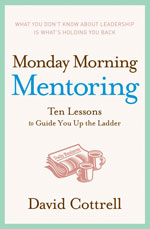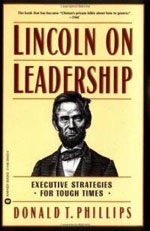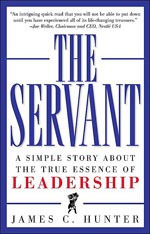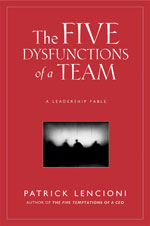 I have thoroughly enjoyed writing about the principles of growth over the last few weeks! As I conclude the series, I want to focus on one other aspect of personal growth.
I have thoroughly enjoyed writing about the principles of growth over the last few weeks! As I conclude the series, I want to focus on one other aspect of personal growth.
John Maxwell believes that in order to grow, we must embrace the power of pausing. Reflection allows growth to catch up with us as we become attuned to and understand the significance of what we have experienced.
Here is a great quote from Jim Rohn reflecting this principle: “At the end of each day you should play back the tapes of your performance. The results should either applaud you or prod you.”
For me, self reflection is the way to remove inner roadblocks—to become aware of the things that are really holding me back so that I can then tackle them by finding a solution or improving my performance. Self reflection is one of the best ways to attain the clarity needed in order to reach our full potential.
When we take a few minutes to reflect at the end of the day, we receive infinite opportunities for growth. When I was a Territory Manager with ConMed, one of the reflection strategies that worked for me was this: after I pulled into my driveway, I would get out the “Standard Model Day” checklist (a checklist for daily accomplishments) along with my written goals for the day and the quarter and would then reflect on the accomplishments and shortcomings for that particular day. I was interested in discovering whether or not I was moving myself closer to or away from my goals.
If you are committed to growth and to the development of your professional career, it’s important to have a strategy. The following 5 steps were derived from what has worked for me, from John Maxwell’s teachings, and from research on the Internet about what works for other successful people. They are:
1. Schedule time in your day for reflection.
Scheduling time for reflection is imperative given the hurried pace of today’s workplace. We need to ensure that we find time to reflect on our past and present decisions and also on our results. When we block out time in our schedule for reflection, we’re giving ourselves that opportunity to address some of those questions that need our attention and focus before we move ahead.
2. Make sure you remove any distractions.
Self reflection can only be effective if we get into the right mindset. It is best if we don’t have anything else on our minds, and it also helps if we aren’t interrupted. It has always been important that I make time for reflection before I come into the house, as with the kids, my beautiful wife (yes, she reads my blogs, and I am trying to get brownie points!—“A happy wife is a happy life”—perhaps a blog topic in the future?!), and family expectations, if I do not allocate those 10 – 15 minutes of reflection daily, then they will never happen.
3. Prepare a list of questions to reflect on.
Once we have designated time for reflection, how do we start this process?
With regards to my sales performance, I use the “Standard Model Day” checklist that I mentioned above. I also write down some additional questions that are relevant to that particular day or time. Having a performance checklist and asking good questions provokes our brains to find answers and solutions.
Good questions are always the ones that bring the topic around to the point by asking “How can I …?”
“Why” questions are not effective because these types of questions can lead to answers that are focused more on excuses rather than on a plan of action.
“How” questions are solution- and action-oriented and thus are much more empowering. For example, the question “How can I get in front of more surgeons?” is much more effective than “Why did I not get in front of enough surgeons today?”
Ask those “how” questions to prod yourself towards action that will help you reach your full potential.
4. Be honest with yourself.
When thinking about each question you need to answer, answer it with the best degree of truth that you can. Being truthful to yourself is a major key—without this you won’t get very far. The power lies within telling yourself the truth—because then you can act. Self reflection allows us to be more effective in the doing, and being truthful with ourselves only adds transparency and clarity.
5. Take action.
If you found a good answer to one of your questions, you now have the power to work from this new knowledge base and to really make a very positive change for yourself. Maybe this means you have to stop something, or maybe it means you do more of something else. Whatever it is, self-attained knowledge is empowering and life changing.
Once you have reached a conclusion and made a decision, commit to that decision and take action! An early lesson in my career came after reading a leadership book by Ken Blanchard entitled The One Minute Manger. Blanchard states this: “Intention – Actions = Squat.” Blanchard goes on to further explain, “All the good intentions in the world don’t mean a thing if they don’t line up with your actions.”
We are either getting better, or we are getting worse—but we never stay the same. Our choice is either to keep moving forward in our personal growth and development or to stop and regress. I hope you choose to grow, grow, and grow. As I have learned from John Maxwell, our goal in personal growth is to reach our full potential. In order to achieve this goal, we need to keep pausing, asking good questions of ourselves, being honest with ourselves, and committing to then take action.
It is then that we will truly grow, grow, and grow!







